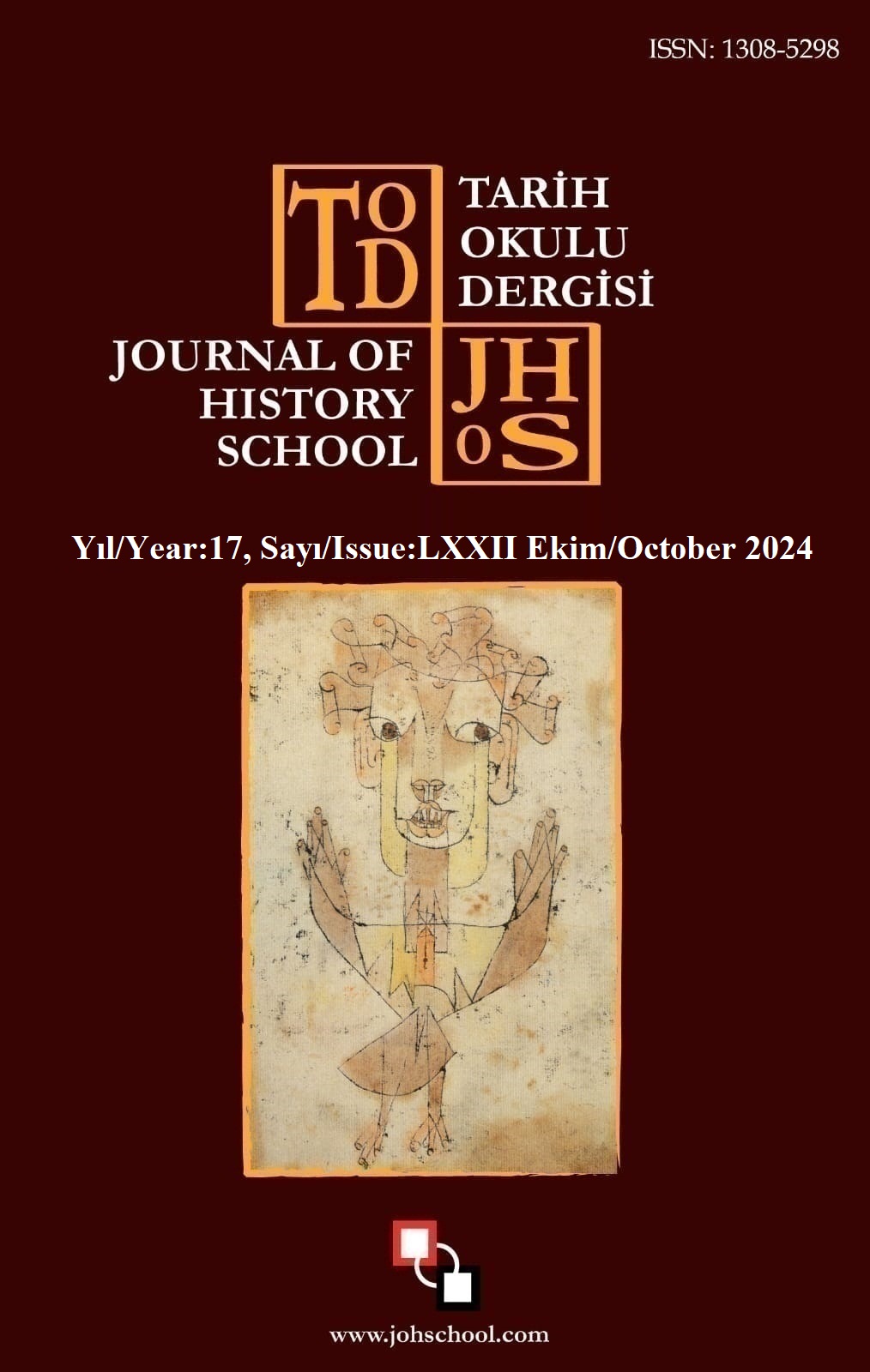ÇOK SESLENDİRİLMİŞ TÜRK MÜZİĞİ VE KLASİK BATI MÜZİĞİ ESER, ETÜT VE DİZİLERİNE DAYALI ÇALIŞMALARIN ORKESTRA DERS BAŞARISINA ETKİSİ
Author :
Abstract
Bu araştırmanın amacı; Çok Seslendirilmiş Türk Müziği (ÇSTM) ve Klasik Batı Müziği (KBM) eserleri, etütleri ve dizilerine yönelik oluşturulan eğitim programının orkestra ders başarısı üzerinde ne düzeyde etkiye sahip olduğunu tespit etmektir. Araştırmada karma yöntem araştırmalarından açımlayıcı sıralı desen kullanılmıştır. Araştırmanın ilk aşamasını oluşturan nicel kısımda yarı deneysel araştırma modellerinden ön test-son test deseni kullanılmıştır. Araştırmanın ikinci aşamasını oluşturan nitel kısımda durum çalışması deseni kullanılmıştır. Araştırmanın çalışma grubunu İnönü Üniversitesi müzik öğretmenliği bölümünde öğrenim gören 20 katılımcı oluşturmaktadır. Araştırmanın nicel boyutunda orkestra ders başarısını belirlemek amacıyla araştırmacı tarafından geliştirilen Orkestra ve Oda Müziği Dersi Başarı Düzeyi Belirleme Formu kullanılmıştır. Araştırmanın nitel boyutunda Türk müziği ve Klasik Batı Müziği eserleri, etütleri ve dizilerine yönelik oluşturulan eğitim programına yönelik öğrenci görüşlerini belirlemek amacıyla yarı yapılandırılmış görüşme formu kullanılmıştır. Araştırmada toplanan verilerin analizinde puanlayıcılar arası uyum geçerliği testi yapılmıştır. Ayrıca nitel kısımda elde edilen verilerin analizinde içerik analizi yapılmıştır. Araştırma sonucunda Çok Seslendirilmiş Türk Müziği ve Klasik Batı Müziği eserlerine yönelik oluşturulan eğitim programının orkestra dersine yönelik ders başarısını olumlu yönde etkilediği tespit edilmiştir. Ayrıca Çok Seslendirilmiş Türk Müziğine yönelik oluşturulan eğitim programın orkestra başarısına daha fazla katkı sağladığı tespit edilmiştir. Araştırmanın nitel analizleri sonucunda, Çok Seslendirilmiş Türk Müziği eserlerine yönelik oluşturulan eğitim programına katılan öğrenciler, orkestra ders başarılarının arttığını, öncesinde olumsuz olarak yaşadıkları belirtilerin olumlu yönde değiştiğini ifade etmişlerdir. Orkestra ders başarılarındaki artışın nedenlerinin öğrencilerin Türk müziğini çok sevmelerine, çalarken keyif almalarına, kulak aşinalığının olmasına, dizi, etüt, eser sıralaması ile çalışmalarına, dikkatli ve titiz bir şekilde çalışmalarına dayandığı söylenebilir.
Keywords
Abstract
The aim of this study is to determine to what extent the training program created for polyphonic Turkish Music and Classical Western Music works, etudes and scales has an effect on orchestra lesson success. The study employed an exploratory sequential design, a methodology commonly used in mixed method research. In the quantitative phase of the study, a quasi-experimental research model, the pretest-posttest design, was employed to investigate the research question. In the qualitative phase, a case study design was used to gain a deeper understanding of the phenomenon under investigation. The study group comprised 20 participants currently enrolled in the music teaching department of İnönü University. In the quantitative dimension of the study, In the quantitative dimension of the study, the Orchestra and Chamber Music Course Achievement Level Determination Form, developed by the researcher, was employed to ascertain the level of success in the orchestra course. In the qualitative dimension of the research, a semi-structured interview form was used to determine student opinions on the training programme created for Turkish Music and Classical Western Music works, etudes and sequences. The inter-rater agreement test were used to analyse the data collected in the study. In addition, content analysis was used to analyse the data obtained in the qualitative part. The research findings indicated that the training programme designed for polyphonic Turkish music and classical Western music had a positive impact on the success of the orchestra course. Furthermore, the training programme designed for polyphonic Turkish music was found to have a greater impact on the success of the orchestra. The results of the qualitative analysis of the study indicated that students who participated in the training programme for polyphonic Turkish music pieces reported an increase in their success in orchestra lessons and a positive change in their negative feelings. It can be concluded that the factors contributing to this increase in success are the students' love of Turkish music, enjoyment of playing it, familiarity with the ear, working with the sequence, etude and piece order, and careful and meticulous work.





